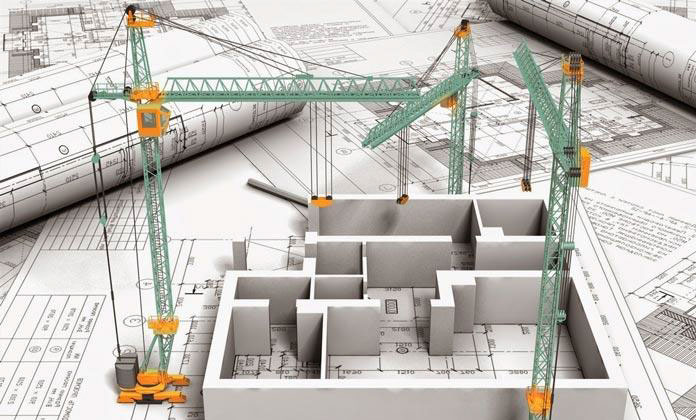Understanding the Role of Civil Works in Urban Development Projects
What is Civil Works in Urban Development?
Civil works refer to essential construction projects that create a city's infrastructure. These include roads, bridges, sewage systems, parks, and utility networks, like water and electricity. Without these projects, a city wouldn’t be able to operate smoothly or support its people's needs. Civil works help ensure residents can access transportation, clean water, public spaces, and other important services. In urban development, civil works projects range widely, from building new highways to installing flood control systems. In simple terms, civil works build the backbone of the city, enabling it to grow and improve for everyone living and working there.
Why Civil Works Are Essential for Urban Planning
Urban planning without civil works is like trying to build a house without a strong foundation. Civil works provide the framework that supports city growth, safety, and public health. They enable cities to function smoothly by connecting various areas and making life easier for residents. For example, a well-planned road system can reduce traffic and help people move around the city more quickly. Reliable sewage and water systems prevent health issues and ensure everyone has access to clean water. In other words, civil works are the unsung heroes that keep cities safe, accessible, and pleasant to live in.
Key Components of Civil Works in Urban Development
Here are some of the main types of civil works that support urban development:
-
Transportation Infrastructure: Roads, highways, bridges, and railways are essential for connecting different parts of a city and beyond. They make it easier for people to commute and for businesses to move goods around efficiently.
-
Utility Systems: These include water supply, electricity, and telecommunications networks. Utility systems ensure residents and businesses have the basic services they need to live and work comfortably.
-
Environmental Projects: Parks, green spaces, and flood control projects are important for city planning. They provide places for relaxation, help improve air quality, and protect against natural disasters like floods.
-
Public Facilities: Schools, hospitals, and community centres are examples of civil works that directly serve the community. They support health, education, and social services.
-
Waste Management and Sanitation: Efficient waste management systems, such as sewage networks and recycling facilities, keep cities clean and protect public health.
Each of these components plays a critical role in making cities functional, safe, and enjoyable places to live.
Benefits of Civil Works in Urban Development
Civil works projects bring many benefits to urban areas, including:
-
Economic Growth: Civil works projects create jobs and attract investment, which helps the city’s economy grow. Improved infrastructure makes cities more attractive to businesses, boosting the local economy and creating more employment opportunities.
-
Public Safety and Health: Roads, bridges, and utility systems built to safety standards protect the public. Good sewage and waste systems prevent disease, and clean water systems provide safe drinking water.
-
Environmental Sustainability: Green projects like parks and clean energy initiatives help reduce pollution and protect natural resources, making cities more resilient against climate challenges.
-
Improved Quality of Life: Civil works make everyday life easier by reducing travel time, improving access to services, and providing public spaces for recreation.
These benefits highlight how civil works contribute to building cities where people can live well and prosper.
Challenges in Civil Works Projects for Urban Development
Despite their importance, civil works projects often face challenges:
-
Funding and Budget Issues: Civil works projects can be expensive, and finding the necessary funding can be a challenge. Budget problems often lead to delays, which can affect the quality of services.
-
Environmental Concerns: Civil works can harm the environment if they’re not managed carefully. Protecting natural resources while building infrastructure is essential for responsible development.
-
Land Availability: In crowded cities, finding space for new projects is difficult. Land disputes and community concerns can add to these challenges.
-
Project Delays: Weather, supply chain issues, and other unexpected factors can slow down construction, increase costs, and delay the delivery of services.
Addressing these challenges requires careful planning, community involvement, and the use of modern technology to ensure projects are completed efficiently and responsibly.
Innovations and Future Trends in Civil Works
Civil works are evolving with new technologies and practices that make them smarter, greener, and more efficient. Here are a few trends:
-
Smart Cities: Cities are using technology like sensors to reduce traffic, save water, and improve overall efficiency. This helps make city infrastructure more reliable and easier to maintain.
-
Sustainable Materials and Practices: Builders are using recycled materials, green building techniques, and renewable energy to reduce their environmental impact.
-
Automation and AI: Automation and artificial intelligence help speed up construction, lower costs, and make project management more efficient.
-
Resilience Planning: To combat natural disasters, cities are building infrastructure that can withstand extreme weather conditions, like flood barriers and heat-resistant materials.
These innovations help make civil works projects more adaptable, eco-friendly, and prepared for the future.
Conclusion
Civil works are essential for the growth and stability of urban areas. They provide transportation, utilities, green spaces, and waste management systems that allow cities to function and grow. Although civil works projects come with challenges, such as funding and environmental concerns, modern technology and careful planning help address these issues. As cities continue to expand, civil works will play an even more important role. Investing in sustainable, resilient civil works today is crucial for creating cities that are not only livable now but also prepared to face the challenges of the future. Through these essential projects, we can build cities that offer safe, convenient, and sustainable environments for everyone.





